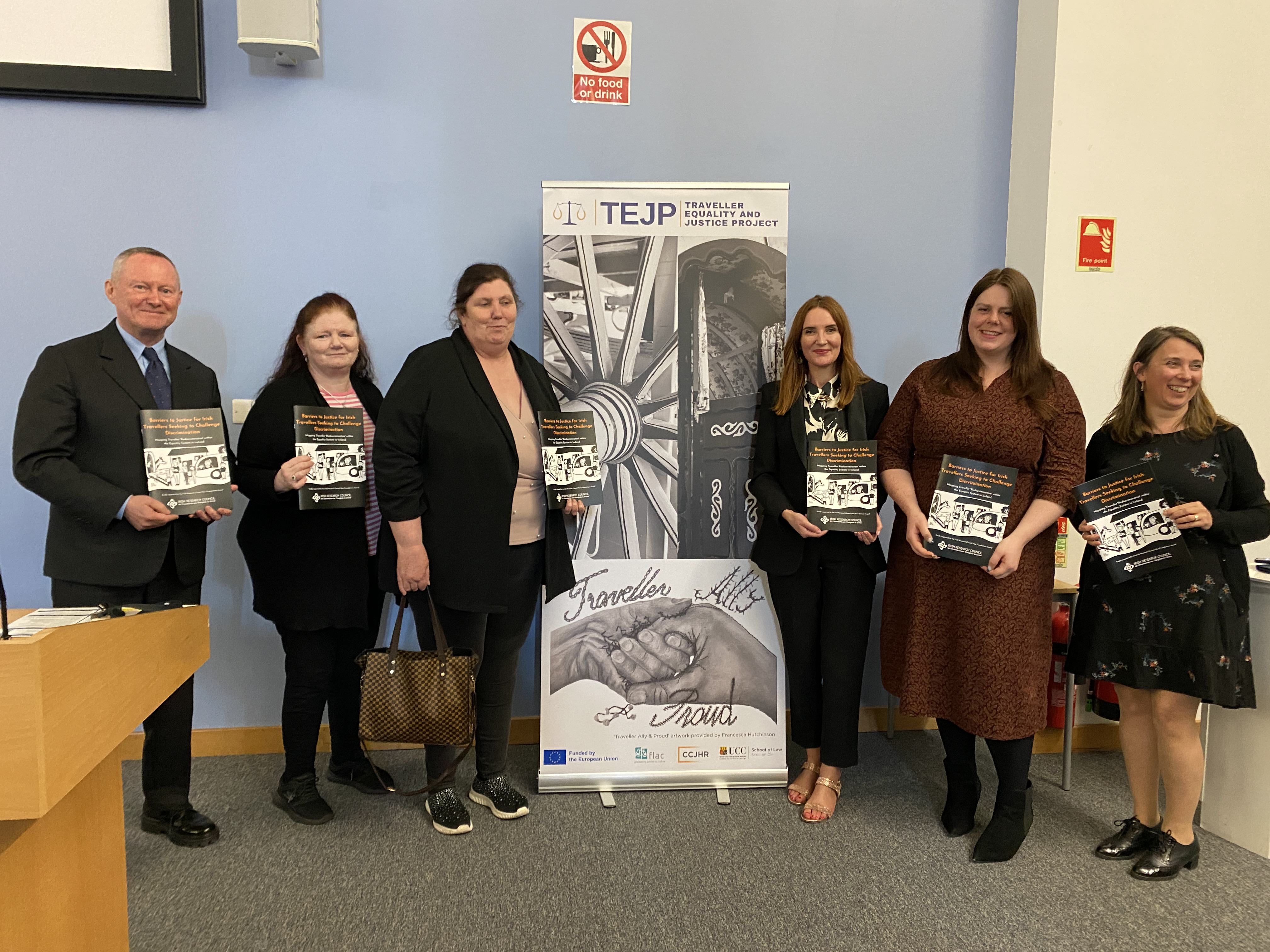Report Launch: 'Barriers to Justice for Irish Travellers' - Watch the Recording here!

Last week the TEJP launched our latest report 'Barriers to Justice for Travellers Seeking to Challenge Discrimination: Mapping Traveller 'Rediscrimination' within the Equality System'. The report is now available to read online here.
The hybrid event was opened by Senator Eileen Ní Fhloinn, with the report formally launched by Prof Michael O'Flaherty of the Fundamental Rights Agency. The event also featured a panel with Brigid Carmody, Anne Marie Quilligan, and report author Dr Samantha Morgan-Williams.
The recording of the event can be watched here:
The report maps the weaknesses of the current equality system and its inaccessibility for socially marginalised groups.
The report found that:
- The majority of Travellers surveyed about their experience with the current equality framework reported a deep distrust and perceived ‘exclusion’ from the equality system.
- Core barriers to accessing justice identified by participants involved access to legal representation costs, and prohibitive barriers in taking cases, alongside unclear avenues to redress.
- The report argues that the testimony of those surveyed clearly indicate that the current system is preventing Travellers from accessing justice.
Speakers at the event, highlighted the important nature of the research.
In particular, FRA Director Professor O’Flaherty noted the positive and impressive impact made by Traveller groups to advance Traveller rights and highlighted the importance of strategic allyship. He commended the report’s approach in foregrounding the voices of the Traveller Community. He demonstrated the importance of socio-legal research in highlighting implementation gaps between law and practice for marginalised groups.
Professor O’Flaherty also made several recommendations, including the need for action planning made by the Government to be human rights-based and created in partnership with Travellers. In launching the report, he made six recommendations to further the principle of non-discrimination for Travellers, this included:
- The need for national Government action planning is essential.
- All responses, including policy and implementation actions, must not only be human rights ‘proofed’ but must centralise and be informed by human rights principles at all stages.
- Travellers must be partners in any action plan development.
- Implementation of national plans needs to engage local communities to take account of variances in local/regional needs. This reinforces the role of Local Authorities.
- Any serious policy efforts must also engage the general population and challenge racism and prejudices including urgent reform of hate speech legislation. The problem for Travellers is the embedded racism of the general population.
- We need to find meaningful ways for Travellers to find justice ensuring their access to justice rights.
The panel discussion then followed, panellists Brigid Carmody from the Cork Traveller Women's Network who highlighted the relentless nature of discrimination and its impact on the community and seconded Professor O’Flaherty's calls for continued strategic allyship.
Anne Marie Quilligan discussed harrowing incidences of everyday discrimination and the impact they can have long term. In considering what lawyers can do to be more sensitive and better able to represent Travellers, suggestions included a need to adopt a trauma-informed response to legal representation and client communications when working with Traveller victims of discrimination.
Overall, the event successfully highlighted the significant barriers that Travellers face within the equality system and the need for victim-centred and informed reform to improve access to justice for Travellers within the equality system. It was also an opportunity to encourage further discussion around solutions to these barriers, that must be implemented for the report to have full effect. We thank everybody who attended in person, as well as those who attended online and who will watch the recording of the event.
